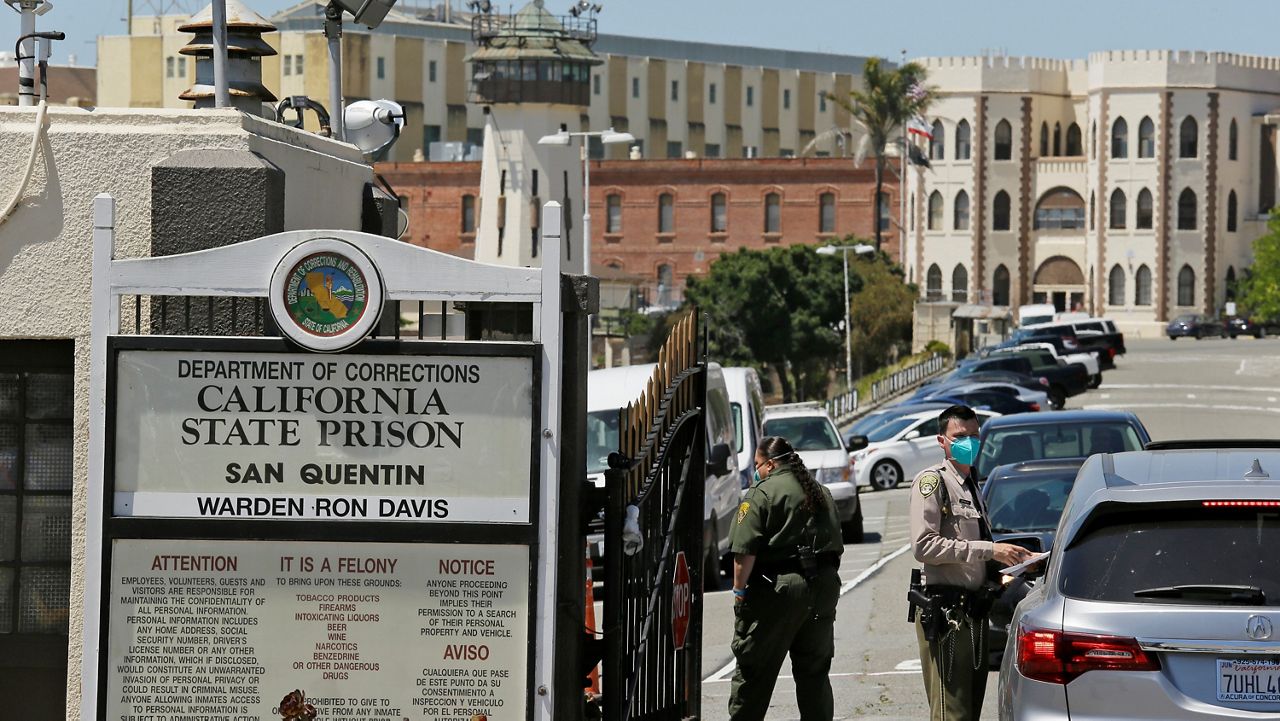SACRAMENTO, Calif. (AP) — The most populous U.S. state not surprisingly has the most people being released from its prisons and jails. And now it has what organizers said Thursday is the nation's first statewide coordinated effort to help them reintegrate back into the community.
The newly formed Reentry Providers Association of California includes some of the state's largest reentry service providers who plan to jointly lobby state and local government officials on behalf of former prisoners.
California typically releases as many as 35,000 people each year who have completed their jail sentences or been paroled from prison, the group said. But even that number soared during the pandemic as jails and prisons last year released thousands of more inmates earlier than normal to allow for social distancing in normally crowded lockups.
The state has also been releasing more inmates earlier because of criminal justice reforms designed to reduce mass incarceration.
That means helping people being released from prisons and jails find housing and jobs "has never been more important," said Susan Burton, founder and president of A New Way of Life Reentry Project in Los Angeles.
Yet the groups said they have historically been under-funded, overlooked and lacking as a government priority despite doing work they said is vital to protecting the safety and health of communities.
"REPAC is going to be that essential unified voice that we need to really help shape the conversations that are taking place all over the state. And there's no better time for REPAC to have begun" as the state invests in rebuilding during the pandemic, said Sen. María Elena Durazo.
She was one of three Democratic state lawmakers supporting the launch at an event Thursday, along with Assemblyman Isaac Bryan and Assemblywoman Mia Bonta, whose husband is state Attorney General Rob Bonta.
Reentry service providers have been "fighting for scraps of resources" at a time when the state spends more on incarceration than it does on the University of California system, Bryan said.
Organizers cited a 2018 study by the advocacy group Californians for Safety and Justice that found more than half of people with a criminal record have difficulty finding a job, and more than a quarter have trouble finding housing.
That sets them up for failure, endangering not only the former prisoners but the larger community, said Doug Bond, chief executive officer of Amity Foundation in Los Angeles.
Bryan called it "a scarlet letter" that hinders their reintegration.
The new organization plans to seek more funding to link former prisoners with things like job training, transportation, child care, educational opportunities and housing. But it also plans to lobby lawmakers and review state laws, regulations, budgets and administrative policies.
Underfunding means reentry services often lack the resources to break the cycle that can trap generations in a pattern of repeated incarceration, said Steven Kim, founder and executive director of Project Kinship, an Orange County-based reentry services provider.
The goal is to "amplify our voices on behalf of this crucial sector of our society that simply does not get the resources and support it needs," said Donald Frazier, executive director of Oakland-based Building Opportunities for Self-Sufficiency and the new organization's director.



